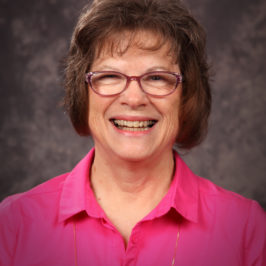You may have wondered whether you should join a writing critique group. Will such a group really help you improve as a writer? What type of critique group should you join, and where do you find one? Will you know how to critique the writing of others? These are all legitimate questions. Most of us writers are already shuffling work and family responsibilities and hoping for a few precious moments to devote to our writing. Thus, we want to be sure any time spent in such a group would prove a good investment.

‘You’ll find a critique group is worth the expenditure of your most crucial resource – time.’ Illustration by Josh Quick
A writing critique group might be defined as consisting of three or more serious writers who meet regularly to read one another’s writing and offer constructive criticism, with the collective goal of improving their craft. The group may also discuss speaker opportunities, worthy conferences, publication venues, and other writing-related matters. Note the adjective “serious” to describe the group members. A serious writer is a working writer, not someone who merely dreams of writing or just wants to talk about writing. Serious writers produce writing, discuss one another’s writings, understand the need for revision, and accept and thoughtfully consider the comments of others.
What follows is a brief, focused consideration of the critique group.
Benefits and Challenges of a Critique Group
Benefits:
- Sharing a passion with like-minded people – in a serious group, everyone is there for the same reason.
- Overcoming the fear of sharing your writing – as you see others overcome this fear and a sense of trust develops, you will be able to share.
- Seeing examples of writing from others – look for models, both for what you should and should not do.
- Receiving feedback on your work – honest feedback is tremendously valuable.
- Honing a skill through practice – talent is not enough; MBA players shoot many, many baskets.
A group will shorten your learning curve, which is invaluable for a beginning writer. The key is to listen and observe closely. You might even ask to delay submission until you’ve observed some meetings.
Challenges:
- Interpreting constructive criticism as a personal attack – resist paranoia, if possible, and if things do get personal the group leader should step in.
- Applying criticism appropriately to improve your work – you needn’t make all changes suggested, but do consider revision, especially if you hear any ideas or suggestions repeated by multiple group members.
- Reacting to the writing of others with respect – a simple “thank you” will do, if you feel uncertain about how to react. Resist becoming defensive and feeling the need to argue.
- Following logistical instructions – adhere to the leader’s directions, which may include limits to the number of submissions allowed, length of submissions, deadlines, etc. Adherence is imperative to group success.
You will overcome many challenges simply by closely observing others as you adapt to a group. If you give a group a fair chance by attending and participating in several meetings and you see no benefit, politely leave and search for another.
Rules for Those Who Write and for Those Who Critique
As with any group of people who may share a goal but have in mind different techniques for reaching that goal, the critique group needs rules. Each group will develop their own, and rules may change over time according to the needs of the writers. However, most groups share several common rules for both the writer/the one who submits, and the reader/the one who critiques. Frequently, all members occupy both roles.
Those who write must:
- Submit work on time – timely submissions are a must to guarantee each piece receives appropriate attention.
- Submit only one draft – if you follow up with a revision before your first draft is discussed, group members may have already invested time and energy on the original draft.
- Listen quietly and without comment to critiques and evaluations – listening to others read and then critique your piece without speaking can be difficult, but is necessary for you to absorb their ideas.
- Ask questions following the critique – take notes as you listen, so you will be prepared to ask for clarification.
- Show gratitude for honest appraisals, whether or not you agree – resist becoming defensive. If you’re not open to revision suggestions, you shouldn’t be there.
Those who critique must:
- Be considerate and helpful – writing “Good Job!” on someone else’s work is not helpful. Be specific. If you liked a passage, note precisely what you liked – that also applies to passages needing improvement.
- Focus on elements of style (theme, rhythm, repetition, figurative language, organization, dialogue, etc.), rather than grammar, spelling, sentence structure, etc., in first readings – secondary issues are important, but not crucial to comment on in an early draft.
- Limit oral suggestions to one comment per critique group member, or as the group leader directs – such limitations apply to larger groups and depend upon time available for critique.
- Critique others as you would like to be critiqued – can you say, “Golden Rule?”
Where Do You Find a Critique Group?
Check with local libraries, bookstores, and college campuses, as well as with professional writing groups that have regional or local chapters. You can also find online groups, although face-to-face interaction is ideal. You can always start a group if you’re up to the organizational challenges. The good news is you can locate many critique group resources online. Begin with this one by Jane Friedman and branch out from there: https://www.janefriedman.com/find-the-right-critique-group/.
You’ll find a critique group is worth the expenditure of your most crucial resource – time. Take seriously the investment of others in your writing, and hopefully, improvement will follow.

